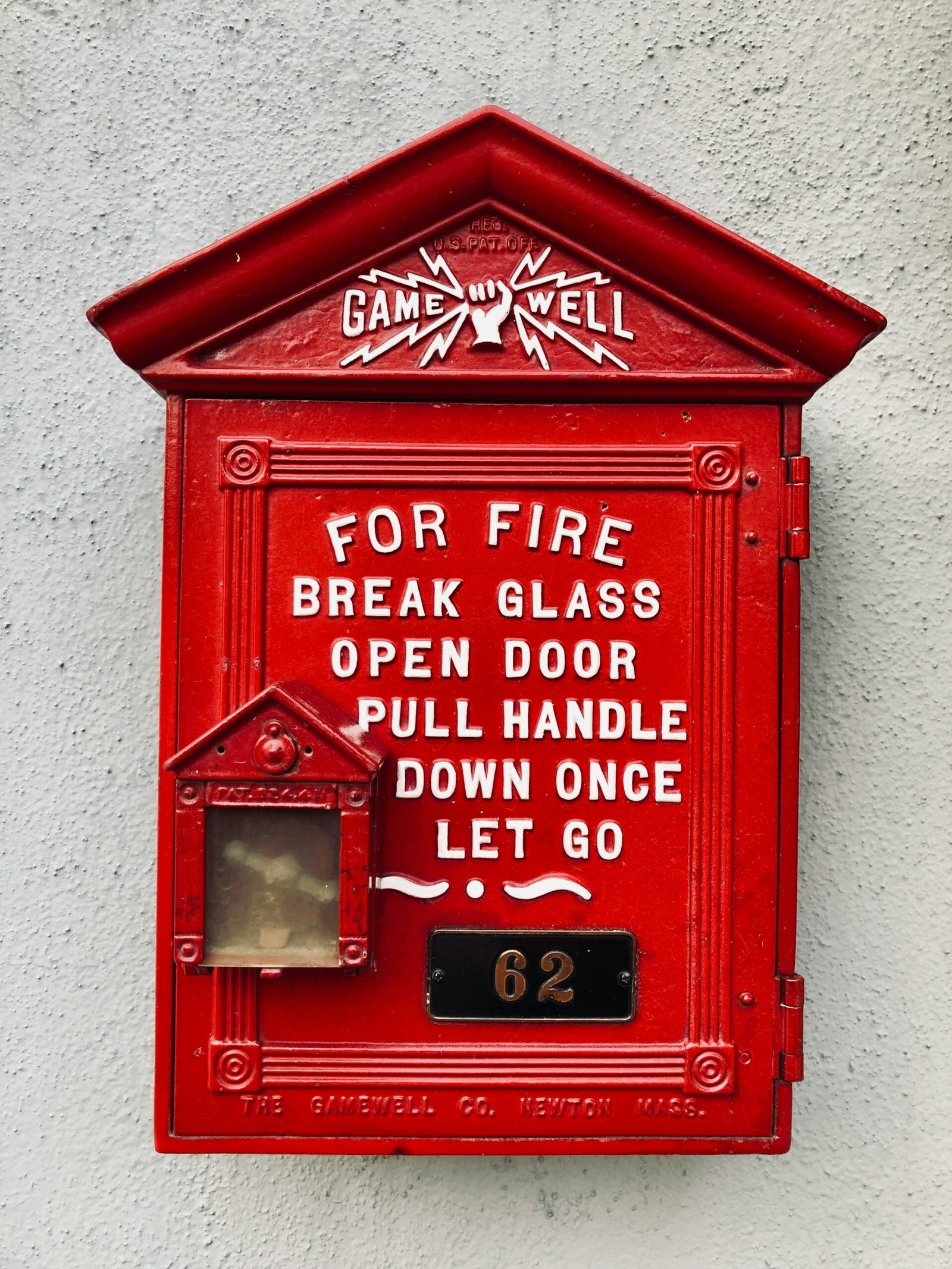Whether you’re a seasoned gun owner or just someone who occasionally transports firearms, it’s crucial to prioritize safety, especially when it comes to carrying guns in your car. In this article, we will explore five essential tips that every car owner should follow to ensure proper gun safety on the road. By adhering to these best practices, you can help prevent accidents, protect yourself and others, and maintain a respectful relationship with firearms. So, let’s dive into these important guidelines and become more responsible gun owners when it comes to our vehicles.
Secure and Store Your Gun Properly
Choose a Secure Storage Option
When it comes to gun ownership, it is crucial to choose a secure storage option that keeps your firearm out of the wrong hands. One of the most effective ways to do this is by investing in a high-quality gun safe or lock box. These specialized storage units are designed to provide a secure and tamper-proof environment for your gun, ensuring that it is inaccessible to unauthorized individuals.
Keep Your Gun Out of Sight
While driving or parked, it is important to keep your gun out of sight to avoid attracting unwanted attention. Leaving a gun visible inside your car can entice potential thieves and increase the risk of theft. Always ensure that you store your firearm in a concealed location, such as a locked glove compartment or a hidden compartment specifically designed for firearm storage.
Lock Your Vehicle
Locking your vehicle is a simple yet effective way to prevent unauthorized access to both your car and your gun. Whether you are in the car or have parked it somewhere, always make it a habit to lock the doors. This reduces the chances of anyone gaining easy access to your firearm, enhancing overall safety and security.
Consider a Gun Safe or Lock Box
In addition to choosing a secure storage option for your gun when it is not in use, consider investing in a gun safe or lock box specifically designed for vehicle use. These portable and discreet storage solutions provide an extra layer of protection when you can’t carry your firearm on your person. They can be securely mounted inside your car, keeping your gun safely locked away while still easily accessible to you.
Unload the Gun
Another important step in properly securing your firearm is to unload it when not in use. Even if you have stored it in a secure lock box or safe, it is best to remove the ammunition from the gun. This reduces the risk of accidental discharge and ensures that the gun cannot be fired by anyone who gains unauthorized access to it.
Know the Laws and Regulations
Understand Concealed Carry Laws
If you are a concealed carry permit holder, it is essential to thoroughly understand the laws and regulations pertaining to concealed carry in your state and any states you may be traveling through. Familiarize yourself with the requirements, restrictions, and obligations that come with carrying a concealed firearm. Each state may have different laws, so it is crucial to stay up to date with any changes or updates that may occur.
Check Interstate Travel Laws
If you frequently travel across state lines, it is imperative to be aware of the interstate travel laws regarding firearms. Some states have reciprocity agreements with others, allowing concealed carry permit holders to legally carry in multiple states. However, it is important to note any restrictions or additional requirements that may apply when carrying a firearm outside your home state. Research and ensure compliance with the laws of the states you plan to visit.
Research State and Local Laws
Gun laws can vary significantly from state to state and even within different localities. To avoid legal complications, it is crucial to research and familiarize yourself with the specific gun laws of the state and any local jurisdictions where you reside or plan to carry your firearm. This includes understanding regulations regarding gun ownership, open carry, concealed carry, and any restrictions on specific types of firearms or accessories.
Be Aware of Restricted Areas
Many places, such as schools, government buildings, and private properties, prohibit firearms on their premises. It is essential to be aware of these restricted areas and respect their rules. Ignorance of the law is not a valid defense, so it is your responsibility to research and understand any locations where firearms are banned or restricted. Always comply with signage and warnings indicating firearms-free zones to avoid legal implications.
Follow Transportation Laws
When transporting your gun, whether in a vehicle or on your person, it is crucial to comply with transportation laws. These laws vary from state to state, but generally, firearms should be unloaded and stored in a secure, locked container, such as a gun case or lock box, during transit. Ammunition should be stored separately from the firearm. Adhering to transportation laws ensures the safety of yourself, your firearm, and the general public.

This image is property of images.pexels.com.
Practice Safe Handling and Usage
Always Treat a Gun as if it’s Loaded
One of the fundamental principles of gun safety is to always treat a firearm as if it is loaded, even if you know otherwise. This mindset helps prevent accidental discharge and ensures that you handle the gun with the utmost care and respect. By always assuming the gun is loaded, you are more likely to follow safe handling procedures, such as keeping your finger off the trigger and pointing the gun in a safe direction.
Keep Your Finger off the Trigger
When handling a gun, it is important to keep your finger off the trigger until you are ready to shoot. This simple practice helps prevent accidental or unintentional discharges that can have severe consequences. By placing your finger along the frame or slide of the gun instead of on the trigger, you minimize the risk of an accidental discharge caused by a reflexive or involuntary finger movement.
Point the Gun in a Safe Direction
Always point the gun in a safe direction, away from yourself and others. A safe direction is one that, in the event of an accidental discharge, will not cause harm or damage. Whether you are at a shooting range or handling a firearm in any other setting, be mindful of where the muzzle is pointing. This ensures that even if an unexpected discharge occurs, no one will be in harm’s way.
Be Familiar with Gun Safety Mechanisms
Every firearm has safety mechanisms in place to help prevent unintentional discharges. It is crucial to familiarize yourself with these mechanisms and understand how they work. Whether it is a safety switch, grip safety, or other features specific to your gun, knowing how to engage and disengage them properly can greatly enhance your safety and prevent accidental firing.
Avoid Horseplay and Showboating
When it comes to gun safety, it is essential to avoid any form of horseplay or showboating. Guns are not toys, and any kind of reckless behavior with firearms can lead to tragic accidents. Never use a gun to intimidate, threaten, or impress others. Treat every firearm with the respect it deserves and engage in responsible and safe behavior at all times.
Educate Passengers and Family Members
Teach Proper Gun Handling and Safety
If you own a gun and have passengers in your vehicle, especially children, it is important to educate them about proper gun handling and safety. Teach them never to touch a firearm without permission and to immediately inform an adult if they come across a gun. Educate them about the potential dangers and consequences of mishandling or misusing firearms, emphasizing the importance of responsible behavior around guns.
Explain the Potential Dangers of Guns
To ensure the safety of your passengers and family members, it is vital to explain the potential dangers associated with guns. Help them understand that guns are not toys and can cause serious injury or death if mishandled. Discuss the importance of avoiding accidental discharges and stress that guns should only be handled by trained and responsible individuals.
Establish Clear Rules and Expectations
Establish clear rules and expectations regarding firearms in your vehicle and home. Make it explicit that no one should touch, handle, or access a firearm without your permission. Set guidelines for safe storage, handling, and transportation of firearms and ensure that everyone in your household understands and respects these rules. Open communication and clear expectations create a safer environment for everyone.
Limit Access to Your Gun
To enhance gun safety, limit access to your firearm, especially when you are not able to directly supervise its use. Implement measures such as keeping the gun securely stored in a locked container or utilizing firearms-specific locking devices. By preventing unauthorized access, you can significantly reduce the risk of accidents and misuse.
Encourage Open Communication
Open communication is key to maintaining a safe environment surrounding firearms. Encourage your family members and passengers to speak up if they have any concerns or questions related to gun safety. Make it clear that they can approach you without fear of judgement or repercussions. By fostering an environment of open dialogue, you can address any concerns promptly and ensure that everyone remains informed and educated about gun safety practices.

This image is property of images.pexels.com.
Be Prepared for Emergencies
Know How to Safely Store Ammunition
Properly storing ammunition is as important as properly storing your firearm. Keep your ammunition separate from your gun and store it in a secure location, such as a locked container or safe. This reduces the risk of accidental discharges and ensures that ammunition is only accessible to authorized individuals. Additionally, store ammunition in a cool and dry place to prevent deterioration.
Carry First Aid Supplies
As a responsible gun owner, it is essential to be prepared for emergencies, including potential injuries caused by firearms. Keep a well-stocked first aid kit in your car, making sure it includes supplies specifically designed to address gunshot wounds, such as trauma bandages and blood clotting agents. Being prepared with first aid supplies can make a significant difference in providing immediate medical assistance if an accident were to occur.
Have a Plan for Quick Access to Your Gun
In situations where a quick response may be necessary, such as during a home invasion or an attack, having a plan for quick access to your gun is crucial. Consider how you will store your firearm for rapid accessibility while still ensuring its security. This may involve using a fingerprint or quick-access biometric safe, strategically positioning the gun in a carefully chosen location, or utilizing holsters or concealed carry options that provide quick and efficient access.
Consider Personal Defense Training
To enhance your ability to handle emergency situations effectively, consider undertaking personal defense training. These training programs focus on teaching practical self-defense techniques and strategies that can help you protect yourself and others. By obtaining proper training, you will be better equipped to handle high-stress situations, making your response more effective, efficient, and safe.
Prepare for Law Enforcement Encounters
In the event that you are stopped by law enforcement while carrying a firearm, it is essential to be prepared for the encounter. Familiarize yourself with the laws in your jurisdiction regarding notifying law enforcement of the presence of a firearm. Keep your hands visible, follow the officer’s instructions, and inform them of the presence of your gun in a calm and respectful manner. By being prepared and cooperative, you can ensure that the encounter remains safe for all parties involved.
Maintain Regular Gun Inspections
Check for Proper Functioning
Regularly inspect your firearm to ensure that it is in proper working condition. Check for any signs of wear, damage, or malfunction. Examine the slide, barrel, and magazine for any visible issues. If you notice any problems or concerns, take your firearm to a qualified gunsmith for evaluation and repair. Maintaining a properly functioning gun is crucial for safe and reliable usage.
Clean and Lubricate Your Gun
Regular cleaning and lubrication are vital for the performance and longevity of your firearm. Clean the barrel, slide, and other components of your gun using appropriate cleaning tools and solvents. Apply a thin coat of lubrication to ensure smooth operation. By keeping your gun clean and properly lubricated, you reduce the risk of malfunctions and ensure that every shot is reliable and safe.
Look for Signs of Wear or Damage
During regular inspections, be attentive to any signs of wear or damage on your firearm. Check for cracks, dents, or loosened parts that may affect its functionality. Inspect the grips, sights, and other accessories for any damage that may compromise their effectiveness. Any signs of wear or damage should be addressed promptly by a qualified gunsmith to maintain the safety and performance of your firearm.
Inspect and Replace Ammunition
Inspect your ammunition regularly and ensure that it is in good condition. Look for signs of moisture damage, corrosion, or deformities in the casings or bullets. Ensure that the ammunition is the correct caliber and type for your firearm. If you notice any issues or if the ammunition has been exposed to adverse conditions, it is essential to replace it promptly to maintain safe and reliable firearm operation.
Store Gun in Appropriate Conditions
Even when not in use, it is important to store your gun in appropriate conditions to prevent damage or deterioration. Avoid exposure to extreme temperatures, excessive moisture, or direct sunlight, as these factors can have adverse effects on the firearm’s performance. Consider utilizing a dehumidifier to maintain optimal storage conditions and reduce the risk of rust or corrosion. Proper storage ensures that your gun remains in excellent working condition when you need it.

This image is property of images.pexels.com.
Practice Situational Awareness
Observe Your Surroundings
Practicing situational awareness involves being aware of your surroundings at all times. It means paying attention to people, objects, and potential threats in your vicinity. By being observant, you can identify and respond to potential dangers more effectively, giving yourself the best chance to avoid or minimize risk.
Stay Alert and Vigilant
Remaining alert and vigilant is critical for personal safety, especially when carrying a firearm. Avoid distractions such as using your cell phone or listening to loud music, as these could compromise your ability to identify and respond to threats. Stay focused and aware of your environment, allowing you to recognize and react to potential dangers promptly.
Be Mindful of Potential Threats
As a responsible gun owner, it is important to develop a sense of situational awareness that helps you identify potential threats. Consider factors such as suspicious behavior, unanticipated changes in your surroundings, or individuals who may be acting in a threatening manner. By being mindful of these potential threats, you can take appropriate action to protect yourself and others.
Avoid Distractions While Driving
Distracted driving is a significant hazard on the road and can compromise your ability to respond effectively to emergencies. When in a vehicle, always keep your focus on the road and avoid distractions such as texting, eating, or engaging in activities that divert your attention. By giving your full attention to driving, you enhance your ability to react quickly and safely to any unexpected situations.
Anticipate and Plan for Different Scenarios
Developing the ability to anticipate and plan for different scenarios is an important aspect of situational awareness. Consider various possible scenarios and develop strategies for responding to them. This may include identifying potential escape routes, evaluating cover and concealment options, and mentally rehearsing your actions in different situations. Being prepared and proactive significantly improves your ability to handle emergencies effectively.
Secure Your Gun during Vehicle Break-ins
Install an Alarm System
To enhance the security of your vehicle and deter potential thieves, consider installing a car alarm system. An alarm system that activates upon unauthorized entry can alert you, those nearby, and potentially scare off criminals attempting to break into your car. This added layer of security can prevent theft and unauthorized access to your firearm.
Park in Well-Lit Areas
When leaving your vehicle unattended, choose well-lit areas to park. Well-lit parking lots and streets discourage criminal activity as they increase the chances of potential thieves being seen and caught. Park near street lights or in areas with good visibility to deter break-ins and protect your vehicle and its contents, including your firearm.
Use Car Security Features
Many modern vehicles come equipped with security features designed to prevent theft and break-ins. Utilize these features to the fullest extent, including auto-locking doors, alarm systems, and keyless entry systems. Always activate these features when leaving your vehicle unattended and ensure that they are functioning properly for maximum security.
Consider a Vehicle Gun Locking Device
In addition to secure storage options for your firearm, consider investing in a vehicle gun locking device. These specialized devices secure your gun within your car, making it virtually impossible for anyone to access or steal your firearm without the appropriate keys or codes. Vehicle gun locking devices provide an extra layer of protection, giving you peace of mind when leaving your gun unattended in your car.
Always Remove Valuables from Your Car
To prevent vehicle break-ins, it is crucial to remove all valuables from your car, including your firearm. Even if you have securely stored your gun in a locked compartment, the presence of valuable items can still attract thieves. Always take the extra precautions to remove any items of value from your vehicle, reducing the risk of a break-in and theft.
Properly Dispose of Unwanted or Unsafe Guns
Research Gun Disposal Options
If you have a gun that you no longer need or is unsafe to use, it is essential to properly dispose of it. Research your options for gun disposal, including local law enforcement agencies, gun buyback programs, and licensed firearms dealers. Understanding the disposal options available to you allows you to make informed decisions and ensure that your firearm is disposed of safely and responsibly.
Contact Local Law Enforcement
If you are unsure about how to dispose of an unwanted or unsafe gun, contact your local law enforcement agency for guidance. They can provide information on the appropriate procedures and resources available in your area. Law enforcement agencies often have specific protocols in place for accepting and disposing of firearms, ensuring that they are removed from circulation safely.
Consider Gun Buyback Programs
Gun buyback programs are often organized by local law enforcement agencies or community organizations as a means of reducing the number of unwanted firearms in circulation. These programs allow individuals to turn in their unwanted or unneeded guns in exchange for compensation, typically in the form of gift cards, cash, or other incentives. Participating in a gun buyback program is a responsible way to dispose of unwanted firearms while potentially contributing to community safety.
Find a Licensed Firearms Dealer
If your firearm has value or is safe for use but is no longer wanted, consider selling or trading it through a licensed firearms dealer. These dealers can assess the condition of the firearm, ensure proper documentation and transfer, and either sell it to another responsible gun owner or include it in their inventory. Working with a licensed firearms dealer ensures that the firearm remains within the legal system and is transferred to a responsible individual.
Never Discard a Gun Unsafely
Under no circumstances should a firearm be discarded unsafely. This includes throwing it away in the trash, leaving it in an unsecured location, or abandoning it in public areas. Such actions can lead to accidental discovery by unauthorized individuals, increasing the risk of misuse or accidents. Always ensure that unwanted firearms are properly disposed of through authorized channels to maintain safety and accountability.
Continuously Educate Yourself about Gun Safety
Stay Updated on Gun Laws
Gun laws and regulations are subject to change, making it essential for responsible gun owners to stay updated on any legislative updates or modifications to existing laws. Regularly consult reliable sources of information, such as government websites or reputable firearm organizations, to ensure that you are aware of the current laws and regulations in your jurisdiction.
Attend Gun Safety Courses
Gun safety courses are an excellent way to continuously educate yourself on safe gun handling practices and the latest recommendations for responsible firearm ownership. These courses cover a wide range of topics, including safe storage, handling, and usage, as well as legal aspects and situational awareness. By regularly attending gun safety courses, you can reinforce your knowledge and skills, enabling you to be a responsible and confident gun owner.
Read Books and Online Resources
There are numerous books and online resources available that provide valuable information on gun safety. These resources cover a wide range of topics, including safe firearm handling, responsible storage, and legal aspects of gun ownership. Take advantage of these educational materials to enhance your understanding of firearms and develop good practices that prioritize safety.
Join Firearms Organizations
Joining firearms organizations not only provides you with a sense of community but also offers access to valuable resources, educational materials, and training opportunities. These organizations often advocate for responsible gun ownership and provide a wealth of information on firearm safety and handling. By becoming a member, you can stay connected with other responsible gun owners and stay up to date on the latest developments in the firearms community.
Attend Gun Safety Events
Gun safety events, such as seminars, workshops, or conferences, provide opportunities for hands-on training, demonstrations, and discussions with experts in the field. Attending these events can further expand your knowledge and skillset, allowing you to become a more informed and responsible gun owner. Stay informed about upcoming gun safety events in your area and make an effort to participate in those that align with your interests and goals.
By following these comprehensive practices for gun safety, you can ensure that you are a responsible and informed gun owner. Safely securing and storing your gun, knowing the laws and regulations, practicing safe handling and usage, educating others, and being prepared for emergencies are all crucial aspects of responsible gun ownership. Continuously educating yourself, maintaining regular inspections, and practicing situational awareness further enhance your ability to prioritize safety while enjoying your firearm responsibly. Remember, being a responsible gun owner is not only a legal obligation but also a moral one.



